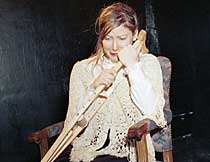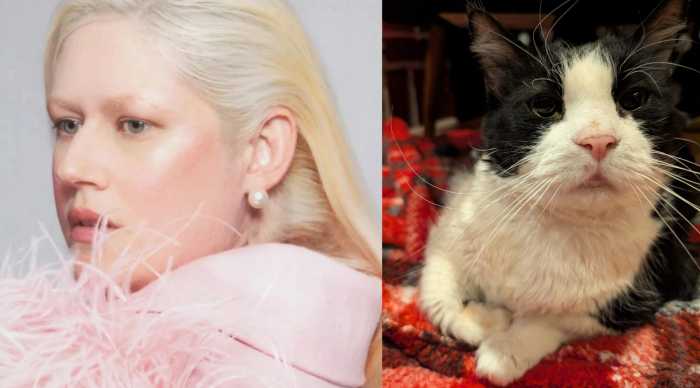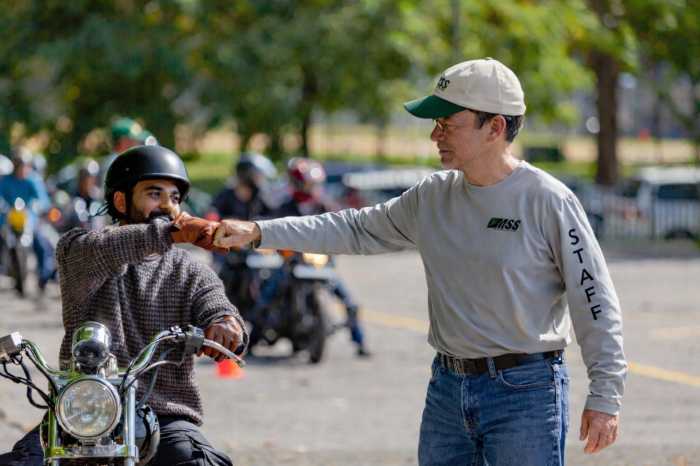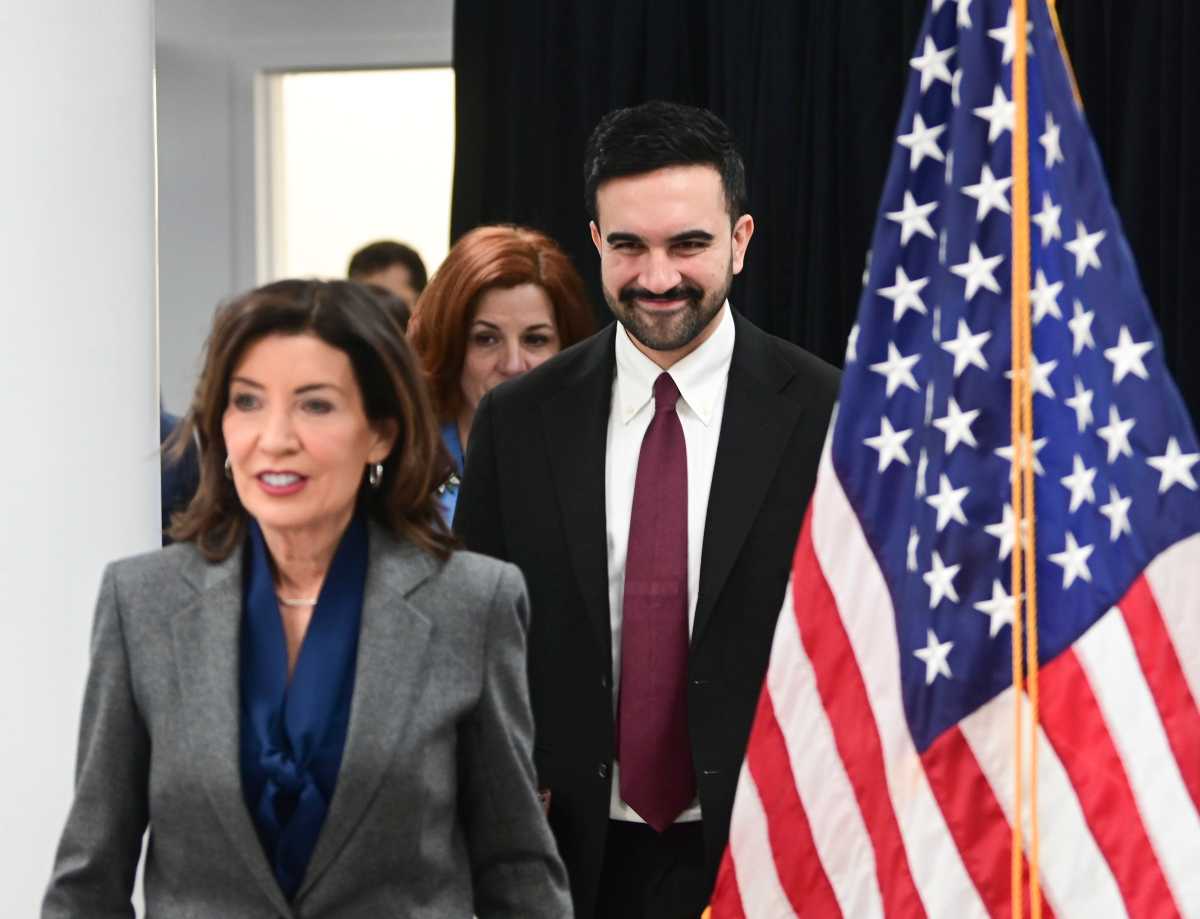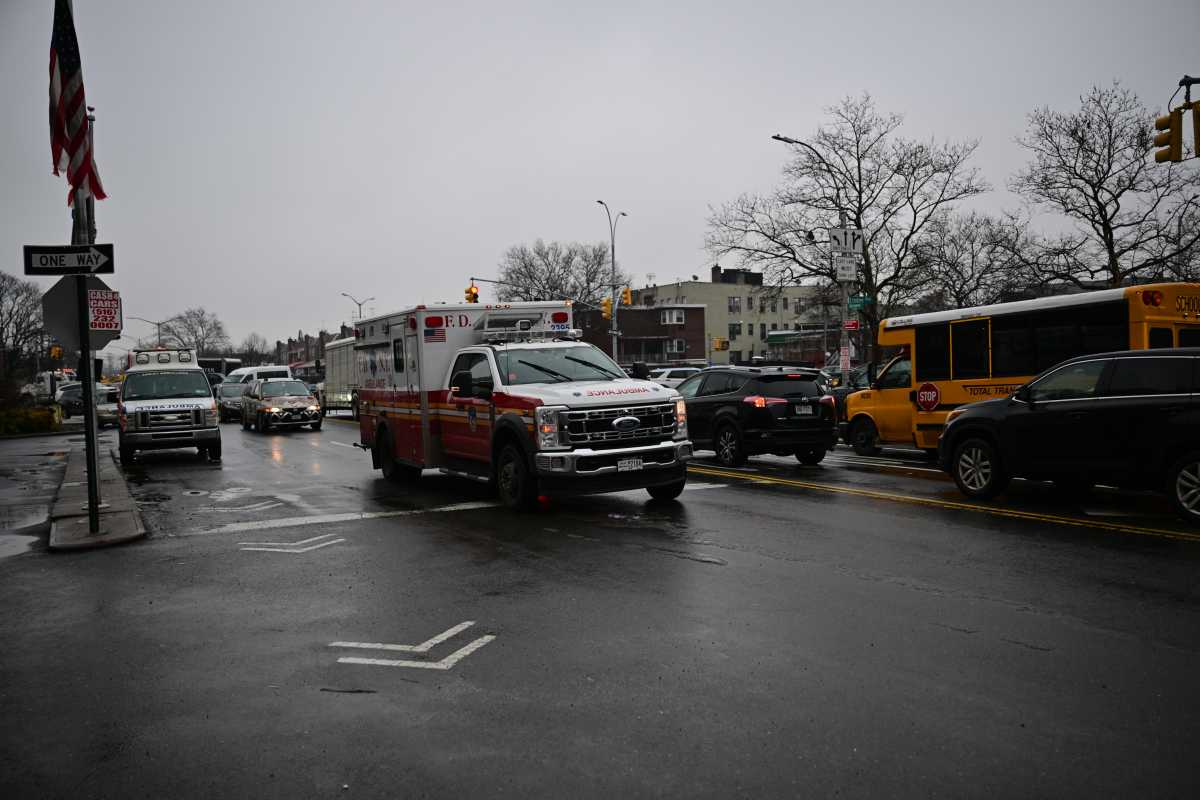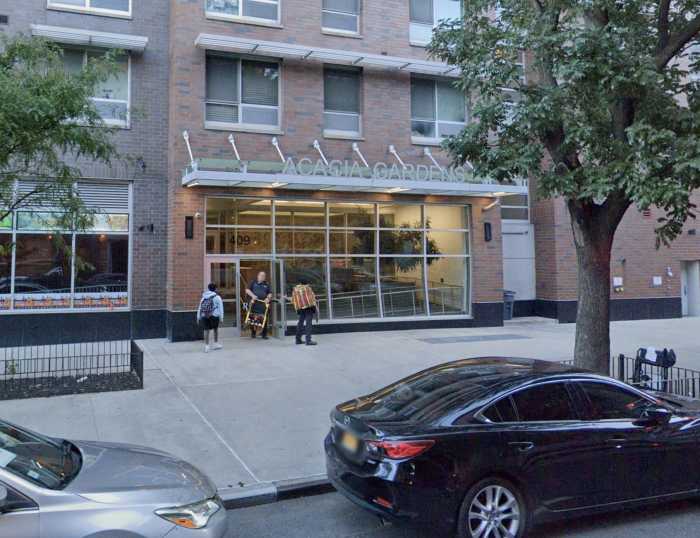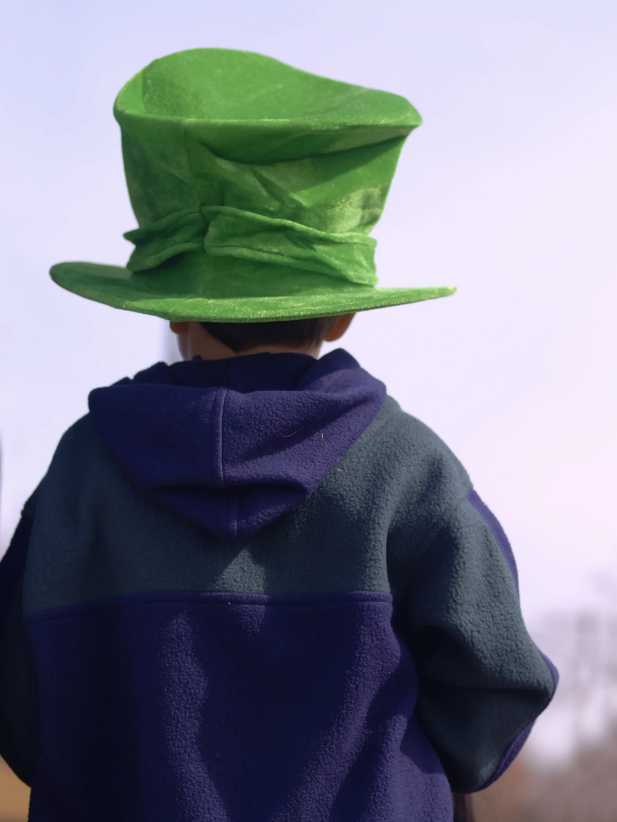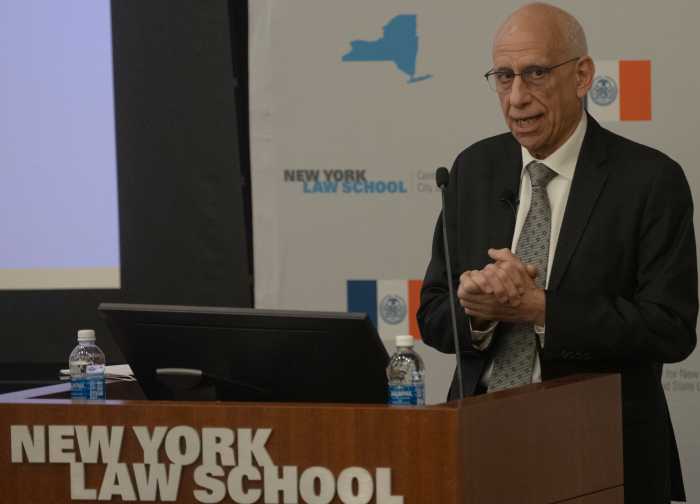"A Christmas Carol" was one of
Charles Dickens’ favorite creations. Not because its publication
in 1843 met with phenomenal success, but because Dickens was
so deeply moved by his story. In fact, years later, Dickens claimed
that he laughed and cried over the story as he did over none
other.
For the next 159 years, the story has continued to make people
laugh and cry – not only in its written form, but also on stage
and screen.
This holiday season, the Waterloo Bridge Theatre Company, newly
installed at the Impact Theatre in Prospect Heights, will present
its original production "Scrooge: A Christmas Carol,"
adapted and directed by J. Brandon Hill.
This is the fourth year Waterloo Bridge is mounting its production
of "Scrooge." Past performances include three runs
at the Waterloo Bridge Theatre Company’s original theater on
West 38th Street at Seventh Avenue in Manhattan, and a run at
the Port Authority Bus Terminal.
The production certainly exhibits the smoothness that comes from
experience. The main characters are all dressed in proper Victorian
clothing and speak with proper English accents. But underneath
all this properness, there’s lots of earnest fun and holiday
cheer for the whole family.
"Scrooge" combines much of Dickens’ original language
(Hill narrates a good deal of the story, reading from a book)
with audience participation, dancing and the singing of Christmas
carols.
Otherwise, this is a fairly traditional rendition of the Yuletide
story. Ebenezer Scrooge (Sam Antar) is mean and mercenary. Bob
Cratchit (Chris Bakolias) is goodness personified. Tiny Tim (Madeleine
E. Russick) is angelic.
Antar is particularly convincing as the old codger, down to the
slightly trembling hand and the stooped shoulders. And Bakolias
knows how to blend Cratchit’s submissiveness with a touch of
defiance.
Hill displays his innovative spirit, however, in his treatment
of the three ghosts that visit Scrooge on Christmas Eve. Instead
of portraying them as ethereal creatures of the netherworld,
Hill’s presents a very solid-looking businesswoman in a miniskirt,
a military officer with a foreign accent, and a surly young lady
with purple hair.
Despite these newfangled ghosts, Scrooge again sees the light,
is converted to goodness and mends his evil ways – thank goodness.
After all, what would Christmas be without Tiny Tim’s chipper
voice declaring, "God bless us, everyone!"
Lavish ’Camelot’
"Camelot," the Frederick Loewe and Allan Jay Lerner
musical based on T.H. Whites’ "The Once and Future King,"
about King Arthur and his Knights of the Round Table, opened
at the Majestic Theatre on Dec. 3, 1960, just weeks after John
F. Kennedy was elected president.
The show, starring Richard Burton as King Arthur, Julie Andrews
as Guinevere and Robert Goulet as Lancelot du Lac, was a huge
hit and a favorite of the new president.
In November 1963, shortly after JFK’s assassination, Jackie Kennedy
asked for an interview with journalist, and family friend, Theodore
H. White. During the interview, she compared her husband’s 1,000
days in office with King Arthur’s noble experiment, memorializing
her husband with the concluding words of the show: "Don’t
let it be forgot, that once there was a spot, for one brief shining
moment that was known as Camelot."
The myth for a long time preserved the golden reputation of the
philandering and reckless JFK, but also put a special shine on
Lerner and Loewe’s musical, which was not much more than a fluffy
attempt to repeat the success of their 1956 hit, "My Fair
Lady."
Indeed, Lerner and Loewe again relied on the talent of Julie
Andrews playing opposite a non-singing British actor. Other parallel
elements certainly abound: the horseracing scene of "My
Fair Lady" and the jousting of "Camelot," the
love of an older man set against the love of a younger man, and
the class consciousness of both the rich and the poor.
Lerner and Loewe also placed their play once again in the hands
of director Moss Hart, choreographer Hanya Holm, set designer
Oliver Smith and musical director Franz Allers.
The pair knew what they were doing, as "Camelot" ran
for 873 performances and won Tony Awards for Burton, Smith and
costume designers Adrian and Tony Duquette.
Over the years, "Camelot" was turned into a 1967 movie
starring Richard Harris and Vanessa Redgrave, and has received
frequent professional revivals (including a much-acclaimed production
at New Jersey’s Paper Mill Playhouse in 1991).
This season, the Heights Players are bringing the musical to
Brooklyn with a production directed by Ed Healy and starring
Daniel F. Marston making his Heights Players debut as King Arthur;
Tina Throckmorton (Guinevere) who debuted last spring as Fiona
MacLaren in "Brigadoon"; and Fabio Taliercio (Lancelot),
who played Tommy Albright in "Brigadoon."
The show delights with the lavish costumes of Albert Walsh and
an unusually full orchestration of synthesizer, trumpet, woodwinds
and percussion led by musical director Anne Rebold.
The show also has excellent supporting performances by Jerry
Kahn as Merlin, Michael Blake as King Pellimore and, most especially,
David Eason Smith, whose portrayal of the evil Mordred is like
a wonderful breath of foul air amid all the cloying niceness
in the play.
The most pleasant surprise is Marston, whose wry humor, agile
movements and bearded good looks remind us ever so much of a
very young Peter O’Toole. In fact, Marston has such a warm voice
and endearing manner it’s difficult to imagine why Throckmorton
would ever prefer the stiff and self-righteous Taliercio.
While "Camelot" will always be a hit with audiences
who love the title song, "If I Would Ever Leave You"
and "What Do the Simple Folk Do?" as well as the spirited
dance numbers, "Camelot" as a play only convinces when
Guinevere is truly faced with an impossible choice – like Richard
Burton versus Robert Goulet – which could conceivably leave her
starving, like the proverbial donkey, between two bales of hay.
But even with its blemishes, "Camelot" is a welcome
arrival on the Heights Players’ stage this season. The problems
King Arthur faces – the fight against evil, the rule of civil
law and civility, personal agendas versus the good of the state,
and the need for sacrifice – are dilemmas we are all too familiar
with.
Perhaps Jackie Kennedy’s view of a presidency that was "a
brief shining moment" is exactly what we need today to light
our path.
The Waterloo Bridge Theatre Company’s production of "Scrooge:
A Christmas Carol" will be performed at the Impact Theatre
[190 Underhill Ave. at St. Johns Place in Prospect Heights, (212)
502-0796] through Dec. 22, Thursday through Saturday at 8 pm,
and Sunday at 3 pm. All tickets are $12.
On Saturday, Dec. 21, Waterloo will hold a benefit party following
the performance. Tickets for the show and party are $20. For
more information, visit their Web site at www.waterloobridge.4t.com.
The Heights Players production of "Camelot" plays through
Dec. 22, Friday and Saturday at 8 pm and Sunday at 2 pm. Tickets
are $15, students and seniors $13. The Heights Players’ theater
is located at 26 Willow Place at State Street in Brooklyn Heights.
For reservations, call (718) 237-2752.


